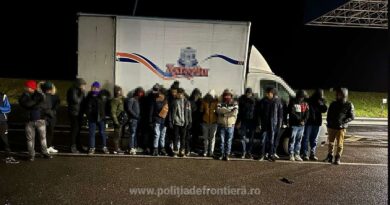Dismantled criminal organization dedicated to international trafficking of hazardous waste to African countries from the island of Gran Canaria
The SEPRONA of the Command of Las Palmas and Customs Surveillance of the Tax Agency in Las Palmas, within the framework of the joint operation “Fortuna”, have dismantled a criminal organization dedicated to international trafficking of hazardous waste to African countries from the island of Gran Canaria .
During the month of November and early December, 43 members of a criminal organization were investigated for alleged crimes against the environment and documentary falsification and belonging to a criminal organization, who in the last two years had managed to transfer from the island of Gran Canaria to Africa more than 5,000 tons of hazardous waste from electrical appliances, obtaining economic benefits that exceed 1,500,000 euros.
Start of investigation
At the beginning of the investigation, 5 clandestine facilities dedicated to the illegal management of waste were detected throughout the island of Gran Canaria, in which hazardous waste from electrical appliances (WEEE) was collected, stored, handled and loaded. to be transferred to African countries, mainly Mauritania, Nigeria, Ghana and Senegal from the port of La Luz in the capital of Gran Canaria.
For this reason, the investigators of Las Palmas carried out inspections and records that led to the intervention and immobilization at source of more than 300 tons of this waste and 14 containers that were ready for transfer.
In addition, the criminal organization removed the waste from the legal management channel, for which they had an alleged management company that falsified documents of origin and management. This waste, which is classified as hazardous, at the end of its useful life must be delivered to an authorized manager for correct decontamination, since this type of waste has components that contain mercury, lead, cadmium, arsenic, phosphorus and gases that They deplete the ozone layer and affect global warming.
In the closed clandestine facilities, those responsible for the shipments were sold the waste that would later be taken to African countries, passing it off as second-hand items.
In the course of the investigation, it was detected that more than 331 containers sent illegally in the last two years to the African continent, were managed and organized by the same people who provided the false documentation, necessary to pass the waste through items that had undergone a decontamination and reuse process. In the same way, the origin of the waste was falsified, omitting that it came out of the clandestine facilities, for which the waste identification documents (ID) were falsified, in which the origin was attributed to technical services and recycling plants. . Within the criminal organization were waste companies and technical services that certified the merchandise.




